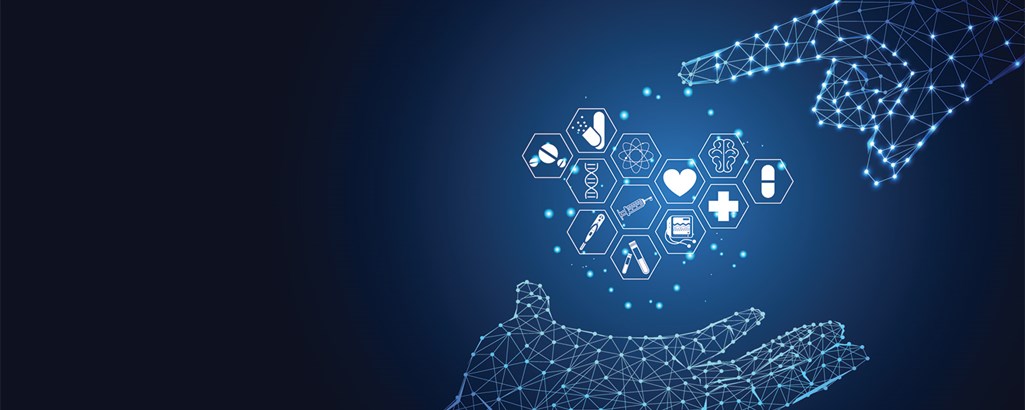Step into the exhilarating modern world of healthcare, where a digital dawn is unfolding. As we navigate this transformative age, telehealth and the Internet of Things (IoT) stand out, not as mere adjuncts, but as driving forces altering the contours of medical care. Beyond these, a cascade of groundbreaking innovations is surging through, pushing boundaries and reshaping our very conception of health and wellness.
Leveraging data for optimal member experience has become more than a mere trend; it's an imperative. By harnessing insights from this data, healthcare providers are better equipped to tailor their services, ensuring each patient's journey is as seamless and personalized as possible. This isn't just a fleeting digital flurry; it's the meticulous crafting of the future. As we move forward, this integrated approach to technology and data isn't just refining the medical blueprint; it's completely reimagining the way we experience healthcare, establishing the gold standard for what lies ahead.
The Precursor: The Digital Strategy Revolution
Every revolution starts with a digital strategy. In the world of healthcare, the inception of this digital transformation began with the realization of the significance of data. Electronic health records (EHRs), once mere repositories of patient information, are now vital assets, driving improved patient outcomes and facilitating value-based care.
Electronic Health Records: Not Just Digital Files
Electronic health records have evolved beyond simple digitized paper files into dynamic cloud platforms, central to modern healthcare. These integrated EHRs empower physicians with instant patient data access, fostering informed decisions and elevating care quality. A Redox study revealed that 97% of provider organizations see real-time clinical data ingestion as crucial. However, many face challenges transitioning to cloud innovation and require guidance to navigate the hidden data roadblocks of cloud adoption in healthcare.
Telehealth: The New Face of Medical Consultation
Telehealth has done more than just bring the doctor to our screens; it has made healthcare accessible and efficient. It's a vivid example of how digital transformation in healthcare can lead to tangible, improved patient outcomes. With remote consultations, geographical boundaries blur, ensuring that everyone gets the care they deserve.
IoT: The Silent Observer
The Internet of Things is redefining proactive care with a futuristic twist. Imagine a gadget that not only tracks your morning jog but also observes your sleep, heart rhythms, and more. These aren't just cool wearables; they're your personal health allies, guiding you to make smart health choices every day. For those navigating chronic conditions, these devices offer a comforting presence, allowing continuous health tracking right from your couch and ensuring your doctor is just a data-share away.
But the magic doesn't stop there. Internet of Medical Things (IoMT) is revolutionizing safety and affordability in healthcare. Picture a medicine dispenser that nudges you just at the right moment or a hospital bed that senses and adjusts for your utmost comfort.
As more hospitals embrace smart medical devices and remote monitoring, the global healthcare IoT market is set to hit US$167.70bn by 2028, with the U.S. leading this surge, projecting a revenue of US$8.3m in 2023.
The Role of Advanced Analytics
The real magic happens when this myriad of data points is processed and analyzed. Advanced analytics, powered by machine learning and AI, provide insights that were previously unimaginable. Predicting potential health risks, customizing care plans, and understanding patient behavior are just a few of the many possibilities that these technologies usher in.
Additionally, advanced analytics facilitates precision medicine by using an individual's pharmacogenomics, or genetic, lifestyle, and environmental data to craft personalized treatment plans. This approach enables healthcare providers to tailor treatments and lifestyle recommendations based on a patient's unique profile, optimizing efficacy and reducing potential risks.
Healthcare Data Integration: The Backbone of Digital Transformation
Imagine data as a solo instrument—beautiful, but imagine the magic when it joins an orchestra! That's the allure of integrated data in healthcare. By weaving insights from myriad sources, we craft a rich, holistic symphony of understanding. This harmonization ensures doctors, pharmacists, and patients all dance to the same tune, elevating everyone's experience to a masterpiece.
Unfortunately, many healthcare organizations struggle with capturing real-time insights from disparate data sources of legacy systems. To overcome this challenge, Productive Edge teamed up with its partner, Redox, to curate our Healthcare Data offerings. With our Healthcare Data Strategy Accelerator, our experts will assess your data landscape, outline integration scope, and develop an execution-ready roadmap in 8 weeks. Coupling it with our Healthcare Data Integration Accelerator, our team will set up your cloud environment, establish data connections, and create a unified data repository in just 12 weeks so that you can start transforming operations by overcoming data silos, streamlining manual processes, and breaking down compliance barriers by leveraging FHIR protocols and cloud-based analytics.
Value-based Care: A Paradigm Shift
The shift towards value-based care is perhaps the most significant testament to the impact of digital transformation in healthcare.
Instead of the traditional fee-for-service models, healthcare providers are now incentivized based on the quality of care they provide. This is possible only with the intricate web of data and insights that digital tools offer.
Crafting the Future of Healthcare
So, what does the future of healthcare look like?
It's a world where every decision is data-driven, where member experiences are not just satisfactory but exceptional, and where the focus shifts from merely treating ailments to preventing them.
To truly leverage the potential of this digital transformation, healthcare providers need to craft a robust digital strategy. This involves not just the adoption of technologies but also understanding their implications and potential.
Conclusion
The revolution in digital healthcare is here, and it's awe-inspiring. With tools like telehealth, IoT, and advanced analytics at our disposal, we're not just witnessing a change; we're part of it. As electronic health records become more integrated and as the tides shifts towards value-based care, the horizon looks promising.
With the correct digital strategy in place, the future of healthcare promises a landscape where data is not just collected but leveraged, where member experiences are unparalleled, and where the ultimate goal is always improved patient outcomes.
Ready to turn your data into actionable insights and deliver hyper-personalized experiences? Schedule a complimentary consultation with our team today.




